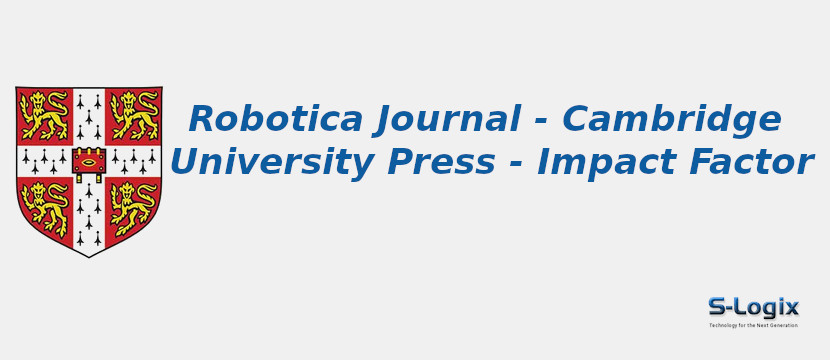Journal Home: Journal Homepage
Editor-in-Chief: Professor Giuseppe Carbone
Print ISSN: 02635747,
Electronic ISSN: 14698668
Abstracting and Indexing: SCOPUS, SCIE
Imapct Factor 2024: 2.7
Subject Area and Category: Computer Science, Computer Science Applications, Software, Engineering, Control and Systems Engineering, Mathematics, Mathematics (miscellaneous)
Publication Frequency:
H Index: 78
Q1:
Q2: Computational Mechanics
Q3:
Q4:
Cite Score: 4.6
SNIP: 0.969
Journal Rank(SJR): 0.556
Latest Articles: Latest Articles in Robotica
Guidelines for Authors: Robotica Author Guidelines
Paper Submissions: Paper Submissions in Robotica
Publisher: Cambridge University Press
Country: United Kingdom
